
Shockwave Therapy for Golfer’s Elbow in Korea
Treatment Overview Shockwave Therapy for Golfer’s Elbow, medically known as medial epicondylitis, is a non-invasive treatment that uses high- or low-intensity acoustic waves to relieve
Korea Beauty Guide connects international patients with leading Korean clinics specializing in men’s health, urology, and andrology. From prostate health and hormonal balance to sexual wellness and fertility care, Korean doctors offer discreet, advanced treatment options. With world-class facilities, personalized programs, and English-speaking coordinators, men can confidently address sensitive health concerns while receiving expert care in a supportive and private environment.

Treatment Overview Shockwave Therapy for Golfer’s Elbow, medically known as medial epicondylitis, is a non-invasive treatment that uses high- or low-intensity acoustic waves to relieve

Treatment Overview Shockwave Therapy for Tennis Elbow, also known as lateral epicondylitis, is a non-invasive treatment that uses high- or low-intensity acoustic waves to relieve
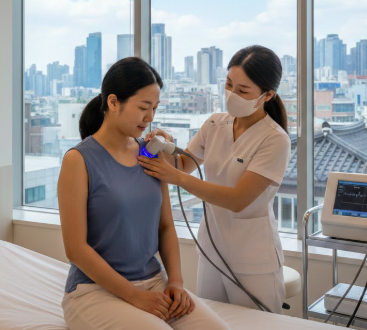
Treatment Overview Shockwave Therapy for Shoulder Pain is a non-invasive, regenerative treatment that uses high- or low-intensity acoustic waves to relieve chronic pain, stimulate tissue

Treatment Overview Shockwave Therapy for Tendinopathy is a non-invasive treatment that uses high- or low-energy acoustic waves to stimulate healing, reduce inflammation, and relieve chronic

Treatment Overview Shockwave Therapy for Plantar Fasciitis is a non-invasive treatment that uses high- or low-energy acoustic waves to stimulate healing, reduce inflammation, and relieve

Treatment Overview Shockwave Therapy for chronic pain is a non-invasive, regenerative treatment that uses high- or low-intensity acoustic waves to stimulate healing, reduce inflammation, and

Treatment Overview Shockwave Therapy for Peyronie’s Disease (PD) is a non-invasive, regenerative treatment designed to reduce penile curvature, plaque formation, and associated pain. Clinically, this

Treatment Overview Shockwave Therapy for Erectile Dysfunction (ED) is a non-invasive, regenerative medical treatment designed to restore natural erectile function by improving penile blood flow
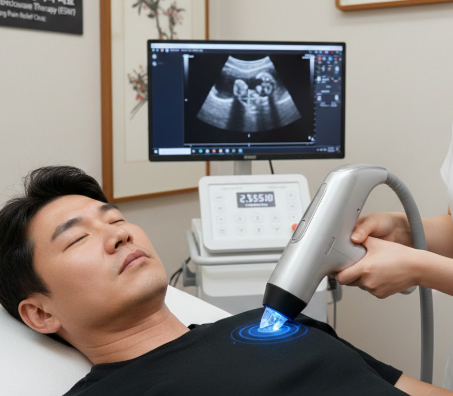
Treatment Overview Focused Shockwave Therapy (FSWT) is an advanced, non-invasive medical treatment that uses high-energy acoustic waves concentrated at a precise depth within the body.
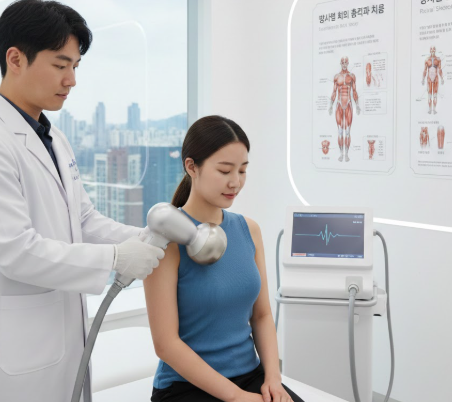
Treatment Overview Radial Shockwave Therapy (RSWT) is a non-invasive therapeutic technique that uses radial pressure waves to stimulate healing in superficial musculoskeletal tissues. Unlike focused

Treatment Overview Low-Intensity Shockwave Therapy (LI-SWT) is an advanced, non-invasive medical treatment that uses low-energy acoustic waves to stimulate cellular regeneration, improve micro-circulation, and enhance

Treatment Overview Shockwave Therapy, clinically referred to as Extracorporeal Shockwave Therapy (ESWT), is a non-invasive medical treatment that uses high-energy acoustic waves to stimulate healing,
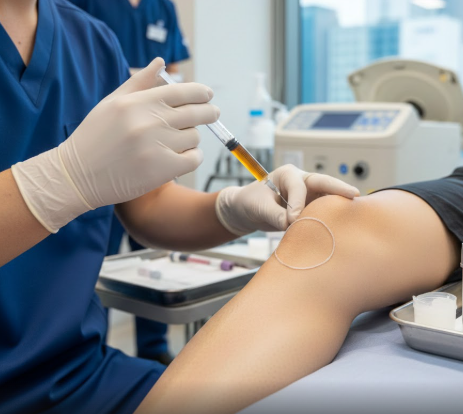
Treatment Overview Stem Cells for Microvascular Repair is an advanced regenerative therapy that targets the small blood vessels (microvasculature) within the penis to restore optimal

Treatment Overview Autologous Cell Suspension Therapy is an advanced regenerative treatment that uses a patient’s own stem cells or regenerative cells to repair and rejuvenate
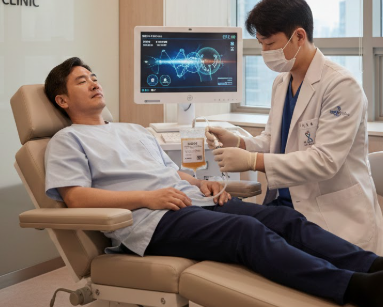
Treatment Overview Stem Cells for Penile Tissue Repair is a state-of-the-art regenerative therapy designed to repair and restore damaged penile tissues responsible for erectile function.

Treatment Overview Mesenchymal Stem Cell (MSC) Therapy is a cutting-edge regenerative treatment that uses multipotent stem cells derived from bone marrow, adipose tissue, or umbilical

Treatment Overview Penile Vasculature Stem Cell Therapy is an advanced regenerative treatment designed to repair and regenerate the blood vessels responsible for penile erection. Vascular

Treatment Overview Stem Cells + Hormone Optimization is a comprehensive regenerative therapy that combines stem cell treatment with personalized hormonal balancing to restore male sexual

Treatment Overview Adipose Stem Cell Exosome Therapy is an advanced regenerative treatment that utilizes exosomes derived from adipose-origin mesenchymal stem cells. These exosomes are nano-sized

Treatment Overview Allograft Stem Cell Therapy is an advanced regenerative treatment that uses donor-derived stem cells rather than cells harvested from the patient’s own body.

Treatment Overview Stem Cells for Erectile Tissue Regeneration is an advanced regenerative medical treatment designed to restore damaged penile tissues responsible for achieving and maintaining

Treatment Overview Stem Cell-Derived Exosome Therapy is a next-generation regenerative treatment that utilizes exosomes—microscopic extracellular vesicles released by stem cells—to promote tissue repair, angiogenesis, and

Treatment Overview Intracavernosal Stem Cell Injection is an advanced regenerative treatment that involves the direct injection of stem cells into the corpora cavernosa—the erectile chambers

Treatment Overview Neurovascular Stem Cell Therapy is an advanced regenerative treatment designed to restore both nerve function and blood vessel health within penile tissue. Erectile

Treatment Overview Endothelial Regenerative Stem Cell Therapy is an advanced regenerative medical treatment focused on restoring and repairing the endothelial lining of blood vessels. Endothelial

Treatment Overview Stem Cell + Shockwave Therapy is an advanced, non-surgical regenerative treatment designed to address erectile dysfunction (ED), penile tissue degeneration, and poor vascular

Treatment Overview Stem Cell + PRP Therapy is an advanced regenerative treatment for Erectile Dysfunction (ED) and penile tissue rejuvenation. It combines the regenerative power

Treatment Overview Exosome‑Enhanced Stem Cell Therapy is an advanced regenerative treatment for Erectile Dysfunction (ED) and penile tissue rejuvenation. It combines stem cells with exosomes—nano-sized